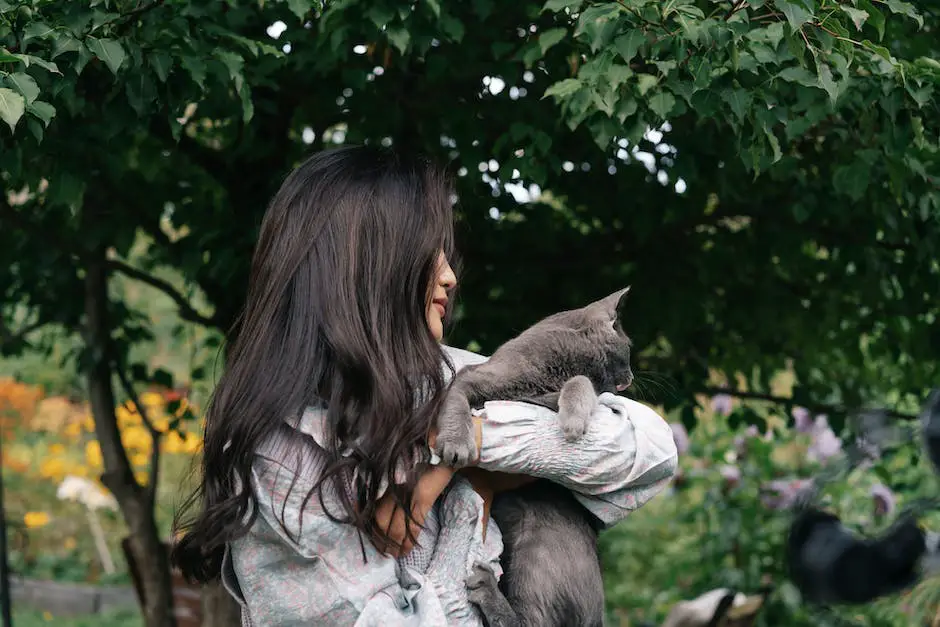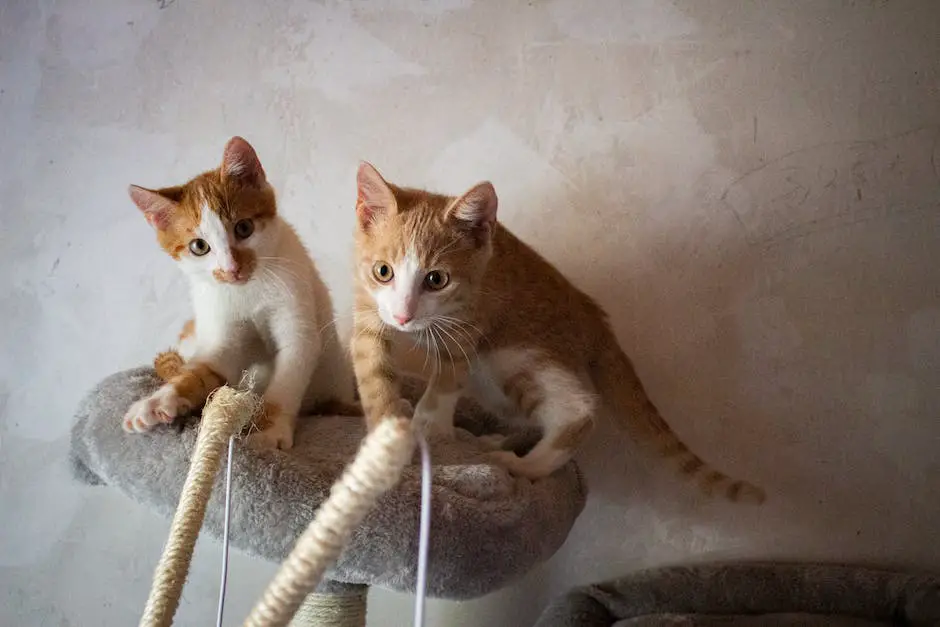Cats are pregnant for an average of 64 days, but the range is anywhere from 62 to 67 days. This doesn’t seem like a very long time, but for a cat who is used to being on her own, it can feel like a lifetime. Being pregnant is a big responsibility and cats need all the support they can get.
Pregnant cats typically stay pregnant for about 9 weeks, give or take a few days.
How many months are cats pregnant?
The average cat gestation period is about 63-65 days, or about two months. However, this can vary somewhat depending on the individual cat. Some cats may be pregnant for as little as 58 days, while others may be pregnant for up to 72 days. Therefore, it is important to keep an eye on your individual cat and consult with your veterinarian if you have any concerns.
A cat’s pregnancy lasts around 9 weeks, and during that time there are a few things you may notice that indicate she is pregnant. Around 30 days after mating, her belly will start to get bigger as the kittens begin to grow inside her. Another symptom that appears 2-3 weeks after conception is that her nipples will enlarge and redden (this is also called “pinking up”). If you think your cat may be pregnant, it’s a good idea to take her to the vet to confirm and to get advice on how to care for her during her pregnancy.
How many kittens are usually in a litter
Cats usually have an average of four kittens in each litter, but this can range from one to 12 kittens. Larger litters are seen more frequently in pedigree breeds such as Oriental, Siamese, and Burmese.
It’s best to give your pregnant cat as much privacy as possible while also leaving yourself the ability to monitor the birthing process for any signs of issues or distress. Most cats would prefer to be left alone during this time, and they definitely don’t want to be pet or touched while they are giving birth. If you’re concerned about your cat’s health, it’s always best to consult with a veterinarian.
Do cats give birth at night?
Your cat’s labour should go smoothly, but it’s useful to have help on hand to keep her calm and in case she runs into any complications. Get hold of your vet’s out-of-hours phone number prior to your cat giving birth, as delivery often happens during the night, or they might need an emergency helping hand.
Pregnant cats are very sensitive, and their tummies are especially sensitive. Avoid touching her tummy, as this could cause her discomfort or hurt her unborn kittens. If you do have to pick her up, scoop her up from her bottom, rather than touch her stomach.
What are the first signs of a cat going into labor?
As your cat’s due date approaches, you may notice her licking her genitalia more frequently. This is because there is a discharge from the cat’s vulva a few hours before birth starts. Your cat’s water will break as well, and she may become restless and pace around. She may also start howling, meowing, or chirping more than usual. If you notice any of these signs, it’s time to get your cat to the vet or an emergency pet hospital.
The average litter size for cats is 4 to 6 kittens. However, adolescents, seniors, and first-timers typically have smaller-than-average litters. First-time moms usually only have 2 or 3 kittens.
Can you touch a newborn kitten
As a general rule, it is best not to handle kittens when their eyes are still closed. This is because their immune system is still developing and they are more susceptible to infection. If you must handle them, make sure to wash your hands thoroughly first and try to limit direct physical contact. The kitten’s mother will also let you know how comfortable she is with you handling her babies.
It is perfectly natural to feel upset and even shocked when your pet dies, especially if it happens unexpectedly at home. However, it is important to stay calm and follow some basic guidelines in order to ensure that you and your other pets are safe.
First, make sure that your pet is actually deceased. Sometimes animals can sleep very still for long periods and it may be difficult to tell if they have passed away. If you are unsure, it is best to contact your veterinarian for guidance.
Once you are certain that your pet has died, you can place a towel under the tail and mouth to absorb any fluids. It is also a good idea to let your other pets smell the deceased pet, as this can help them to understand what has happened and start to come to terms with their loss.
What to do after cat gives birth?
Post-labor care is important for both the mother and the kittens. Keep the space clean and quiet so the mother can rest and the kittens can bond with her. Weigh the kittens daily so you can track their progress and make sure they are healthy. Do not take the kittens away from the mother while weighing them so she can comfort them if they are stressed.
During active labor, your cat will likely experience contractions that cause discomfort. You may also see a discharge of blood or other fluids. Be sure to provide your cat with plenty of love and support during this time.
Do cats cry when in labor
During birth, your queen will “cry” and sound distressed, which is completely normal. You can expect to see a kitten every 10 to 60 minutes, and it’s likely your cat will eat the placentas and chew through the kittens’ umbilical cords.
Once your cat begins labor, you will notice a few behavioral changes. She might begin to yowl or make unusual noises and start pacing around the room. After a while, you will notice that she will go over to the birthing nest or to another quiet location of her choosing.
How long is cats first labor?
During the first stage of labor, contractions may last up to thirty-six hours. The queen usually stops eating during the last twenty-four hours before labor, and her temperature may drop below 100°F (378°C). Vaginal discharge is rarely seen.
Cats typically have a full delivery that lasts 16 hours, but it can range from 4-42 hours (up to three days in some cases may be normal). It’s important to consider this variability before intervening. The third stage is the delivery of the fetal membranes.
What should a pregnant cat not do
You will want to keep your cat relatively active during her pregnancy in order to ensure she is fit for giving birth. Avoid any excessively rowdy activity towards the end of your cat’s pregnancy, however. You will need to help her stay calm as she nears her due date, as anything too active could cause her stress.
5-point checklist for owners expecting kittens:
1) Feed your mother-to-be kitten food
2) Set up a kittening area
3) Choose the right bedding
4) Organise some emergency equipment
5) Prepare milk replacer and kitten food
What do you feed a cat after she gives birth
It is very important that nursing mother cats eat a high quality kitten formula food. If she is a picky eater, do not hesitate to try feeding her canned tuna, chicken or salmon. Do not give cow’s milk to cats, despite popular belief, it is impossible for cat’s to digest and often causes serious stomach upset.
The next few weeks are crucial for the developing kittens. Their bones and muscles will start to grow rapidly, and they will begin to take on a more feline shape. The mother’s body will also start to change to accommodate the growing kittens. Her back will hollow out, her pelvis will become wider, and her abdomen will swell. All of these changes can be quite uncomfortable for the mother, but it is all part of the miraculous process of bringing new life into the world.
When can you start holding the kittens
socialization is important for all animals, but especially for kittens. Kittens who are not socialized may have trouble adjusting to new situations and people later in life.
If you’re pregnant and hoping to feel your baby’s movements, you’ll usually have to wait until at least 7 weeks. However, every pregnancy is different, so don’t be concerned if you don’t feel anything until a bit later. Some women don’t feel their baby’s kicks until they’re well into the second trimester. Trust your body and your baby will let you know when the time is right!
Can I put 2 kittens litters together
You want to do so with their health and safety in mind it might be tempting to quickly place two children in the same room together, but there are a few things you should consider first. will they fight over toys?Be sure to provide enough for each kid, especially if they’re close in age. If one child is consistently having to share while the other gets more, jealousy can develop.
You also want to make sure the room is furnished in a way that promotes safety and encourages positive behavior. For example, if you’re putting siblings in the same room, you’ll want to make sure there’s a barrier between the beds in case they roll over in the night. You’ll also want to avoid putting any furniture that could be used for climbing near windows.
It’s generally agreed by experts that having two cats share one litter box is asking for trouble. It can cause stress and increase aggression between the cats, and can also result in out-of-box urination. So, if you have two cats, it’s best to provide them with two separate litter boxes.
Do two female kittens get the same litter
Even if you have multiple kittens from the same litter, they might not have a lifelong sibling bond. Cats don’t reach social maturity until they are between 18 months and four years old, so even if they get along when they are young, this might drift apart as they grow older.
A mother cat will not reject her kittens if they are touched by humans. However, they may be moved to a different location by the mother cat. If you find neonatal kittens, it is best to leave them alone so that the mother cat can come back for them.
Why should you not touch kittens after birth
It’s important to avoid touching your cat’s newborn kittens unless something is wrong. The mother will be very protective over them and might not want you touching them. Sometimes, handling newborns too much can cause their mother to reject them.
While it is a common misconception that kittens can be separated from their mothers as early as 8 weeks old, this is actually not the case. Kittens separated at this time are still at risk for developmental, social, and health issues. Instead, kittens should remain with their mothers until they are 12-14 weeks old. This will help them to develop properly and stay healthy.
Final Words
The average length of a cat’s pregnancy is 63 days.
There is no definitive answer to this question as it can differ from cat to cat. However, on average, cats are pregnant for around 9 weeks before giving birth to their litter. Therefore, if you are thinking of getting a cat, it is best to do your research in advance to find out how much time and effort you will need to prepare for their arrival.






